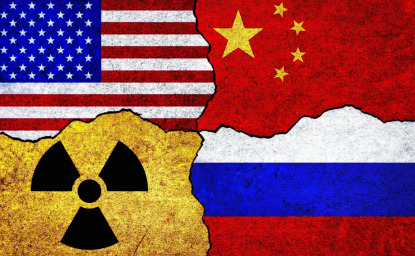A landmark achievement for human rights, the Jackson-Vanik Amendment to the Trade Act of 1974 makes favorable trade status conditional on the freedom of emigration. Some 35 years later, the amendment is still in effect for certain nations, including Russia, which has complicated the U.S.-Russia trade relationship. Experts honor the legacy and debate the relevance of Jackson-Vanik in today's world.
On 4 February 2010, the Kennan Institute and the Henry M. Jackson Foundation hosted a conference exploring the history, legacy, and lessons of the enactment and life of the Jackson-Vanik Amendment.
For a summary of the event, complete listing of participants and panels, and full video of the day's proceedings, click here.
The March 2010 issue of Centerpoint, newsletter of the Woodrow Wilson Center, features a report on the conference and commentary by Kennan Institute deputy director William Pomeranz.
Wilson Center on the Hill
On 3 February 2010, several of the conference panelists traveled to Capitol Hill as part of the Wilson Center on the Hill program for a wide-ranging discussion on Jackson-Vanik and U.S.-Russian relations. For a video of the Wilson Center on the Hill meeting, including commentary by Congressman Dana Rohrabacher during the discussion period, click here.
On 13 December 2011, a panel of experts returned to Capitol Hill as part of the Wilson Center on the Hill program to discuss the status of the Jackson-Vanik Amendment following Russia’s accession to the WTO. For a video of the Wilson Center on the Hill briefing, including commentary from Woodrow Wilson Center CEO and President Jane Harman, please click here.

Kennan Institute
After more than 50 years as a vital part of the Wilson Center legacy, the Kennan Institute has become an independent think tank. You can find the current website for the Kennan Institute at kennaninstitute.org. Please look for future announcements about partnership activities between the Wilson Center and the Kennan Institute at Wilson Center Press Room. The Kennan Institute is the premier US center for advanced research on Eurasia and the oldest and largest regional program at the Woodrow Wilson International Center for Scholars. The Kennan Institute is committed to improving American understanding of Russia, Ukraine, Central Asia, the South Caucasus, and the surrounding region through research and exchange. Read more

Explore More
Browse Insights & Analysis
US Inaction Is Ceding the Global Nuclear Market to China and Russia

Infographic | Russia's Illegal Annexation of Crimea

